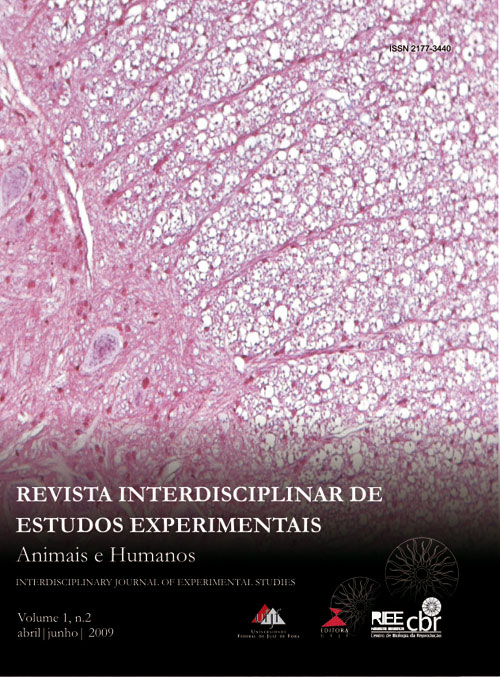THE ROLE OF THALIDOMIDE ON CACHEXIA DURING
Abstract
We investigated the effect of thalidomide on cachexia and TNF-? serum levels during experimental skin carcinogenesis in mice. Female mice were divided into four groups: 1) DMBA (dissolved in acetone) induced tumorigenesis; 2) DMBA and Thalidomide (dissolved in DMSO); 3) DMBA and DMSO; and 4) Acetone. Body weight was measured once a week. Euthanasia was performed 14 weeks later, when blood was collected for the dosage of TNF-? serum levels. Mice with DMBA induced tumorigenesis had a significant loss of body weight when compared to acetone treated animals, starting at the third week and lasting the whole experiment. But there was no difference among Thalidomide treated and the others DMBA control animals, regarding body weight. High TNF-? serum levels were associated with the development of cachexia in mice during the process of experimental skin tumorigenesis. However, there was not a significant difference in the TNF-? serum levels when compared control mice and thalidomide treated mice. These results suggest that thalidomide does not interfere with skin tumorigenesis, cachexia and serum TNF-? levels in Balb/C mice. In addition, high TNF-? serum levels are associated to weight loss during experimental carcinogenesis.
Downloads
Downloads
Published
Issue
Section
License
Autores que publicam nesta revista concordam com os seguintes termos:- Autores mantém os direitos autorais e concedem à revista o direito de primeira publicação, com o trabalho simultaneamente licenciado sob a Creative Commons Attribution License que permitindo o compartilhamento do trabalho com reconhecimento da autoria do trabalho e publicação inicial nesta revista.
- Autores têm permissão e são estimulados a citar e distribuir seu trabalho (ex.: em repositórios institucionais, página pessoal, trabalhos científicos, etc) desde que citada a fonte (referência), já que isso pode gerar produtividade para os autores, bem como aumentar o impacto e a citação do trabalho publicado.

